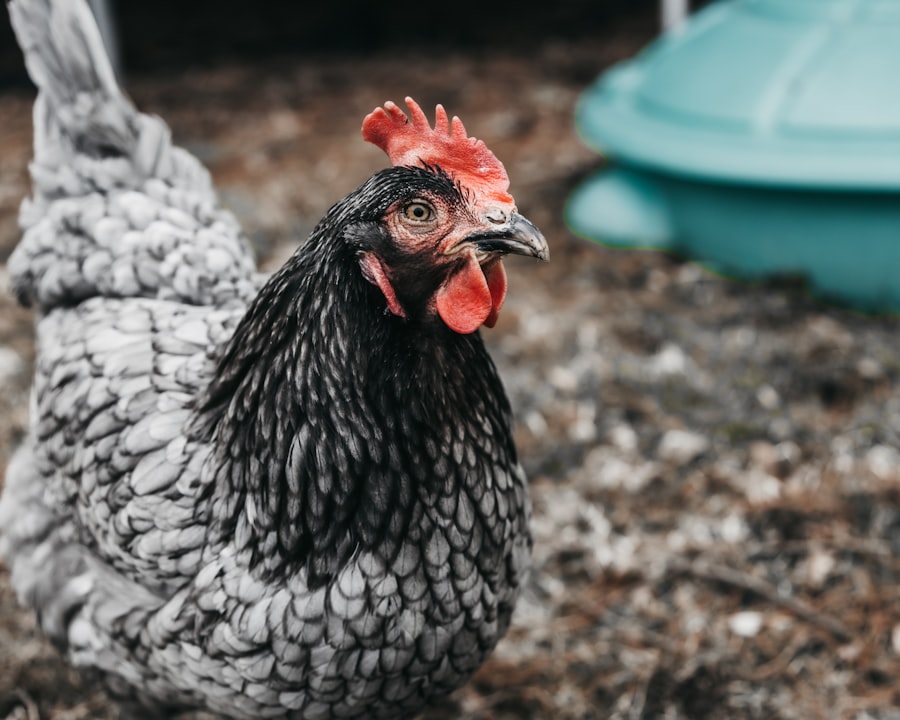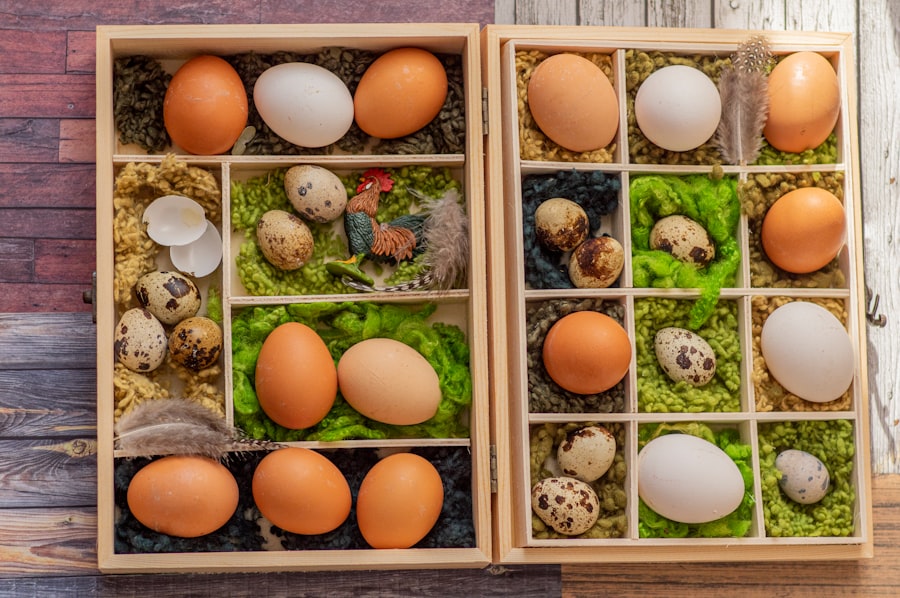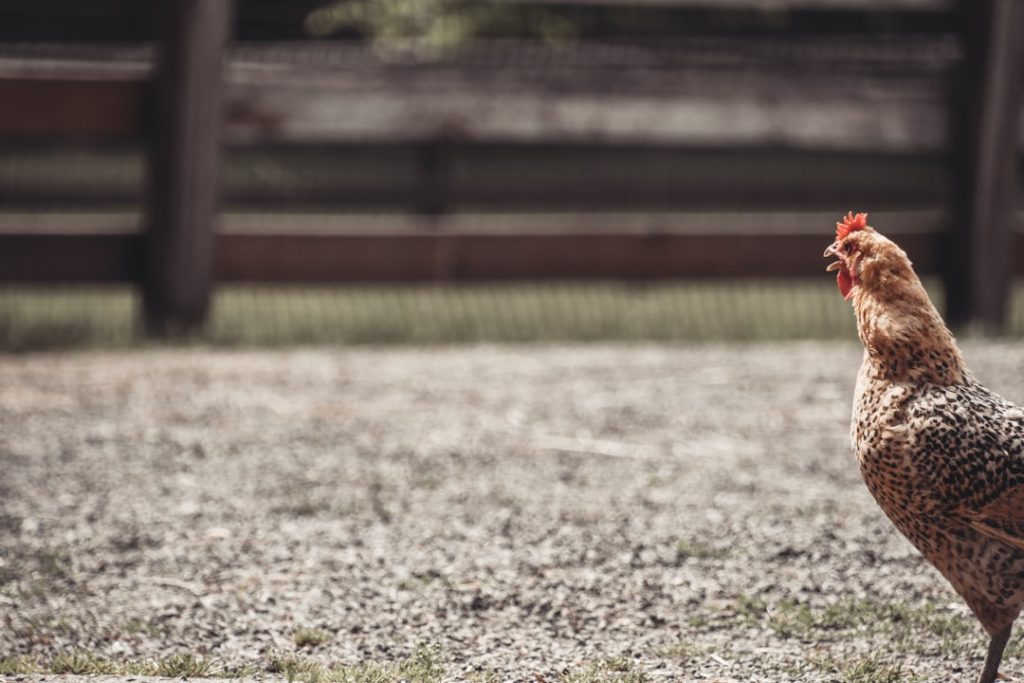Chickens have a natural inclination to roost and nest in elevated areas, which provides them with a sense of security from potential predators. This behavior is deeply ingrained in their instincts and forms an essential part of their daily routine. However, this natural tendency can lead to challenges in maintaining clean nesting areas, as chickens often defecate while roosting.
Understanding chicken behavior is crucial for effectively addressing the issue of soiled nesting boxes. By comprehending their natural instincts and tendencies, poultry keepers can design coop layouts and implement strategies that discourage chickens from defecating in nesting areas. Chickens are social animals that establish a hierarchical pecking order within their flock.
This social structure can influence their behavior, including their choice of roosting and nesting locations. Additionally, chickens prefer dark, secluded spaces for laying eggs. Recognizing these behavioral patterns allows for the creation of an environment that meets the chickens’ needs while minimizing the likelihood of soiled nesting boxes.
By observing and understanding chicken behavior, poultry keepers can develop strategies that cater to the birds’ natural instincts while addressing the challenges associated with maintaining clean nesting areas. This knowledge enables the implementation of effective solutions that promote both chicken welfare and coop hygiene.
Table of Contents
- 1 Designing the coop layout to discourage pooping in nesting boxes
- 2 Providing alternative roosting and nesting options
- 3 Regular cleaning and maintenance of nesting boxes
- 4 Using deterrents to discourage chickens from pooping in nesting boxes
- 5 Training chickens to use designated roosting and nesting areas
- 6 Seeking professional advice for persistent issues
- 7 FAQs
- 7.1 What are some reasons why chickens poop in nesting boxes?
- 7.2 How can I prevent chickens from pooping in nesting boxes?
- 7.3 What are some strategies for keeping nesting boxes clean?
- 7.4 Are there any health risks associated with chickens pooping in nesting boxes?
- 7.5 Can I train my chickens to not poop in nesting boxes?
Key Takeaways
- Chickens have a natural instinct to roost and nest in elevated areas, which can lead to pooping in nesting boxes.
- Design the coop layout to discourage chickens from roosting and nesting in the same area where they lay eggs.
- Provide alternative roosting and nesting options such as elevated perches and separate nesting boxes.
- Regularly clean and maintain nesting boxes to prevent buildup of poop and encourage chickens to use them for laying eggs.
- Use deterrents such as fake eggs or spikes to discourage chickens from pooping in nesting boxes.
- Train chickens to use designated roosting and nesting areas through positive reinforcement and consistency.
- Seek professional advice if chickens continue to poop in nesting boxes despite efforts to discourage the behavior.
Designing the coop layout to discourage pooping in nesting boxes
Encouraging Natural Behavior
When designing a coop layout, it’s essential to consider the natural behavior of chickens and create a space that encourages them to roost and nest in designated areas while discouraging them from soiling the nesting boxes. One effective strategy is to provide alternative roosting and nesting options that are separate from the nesting boxes. By offering alternative spaces that cater to their natural instincts, such as elevated roosting bars and secluded nesting areas, we can reduce the likelihood of chickens choosing the nesting boxes for roosting and defecating.
Strategic Nesting Box Placement
Another important aspect of coop design is the placement of the nesting boxes. Placing the nesting boxes in a well-lit area can discourage chickens from using them as roosting spots, as they prefer dark, secluded spaces for laying eggs. Additionally, ensuring that the nesting boxes are easily accessible for egg collection but not easily accessible for roosting can help minimize soiling.
Creating an Ideal Environment
By strategically designing the coop layout to cater to the natural behavior of chickens, we can create an environment that reduces the likelihood of chickens pooping in nesting boxes.
Providing alternative roosting and nesting options

In order to discourage chickens from pooping in nesting boxes, it’s important to provide alternative roosting and nesting options that cater to their natural instincts. Elevated roosting bars are a great alternative to nesting boxes for chickens to roost on. By providing multiple roosting bars at varying heights, chickens can choose their preferred spot to roost, reducing the likelihood of them choosing the nesting boxes for this purpose.
Additionally, providing secluded nesting areas with comfortable bedding can encourage chickens to lay their eggs in designated spots rather than in the nesting boxes. Creating alternative roosting and nesting options also involves considering the preferences of different chicken breeds. Some breeds may prefer higher roosting spots, while others may prefer lower ones.
By providing a variety of options that cater to the specific needs and preferences of different breeds, we can effectively discourage chickens from pooping in nesting boxes. Additionally, ensuring that these alternative options are well-maintained and regularly cleaned can further encourage chickens to use them instead of the nesting boxes.
Regular cleaning and maintenance of nesting boxes
Regular cleaning and maintenance of nesting boxes are essential in discouraging chickens from pooping in them. Dirty and soiled nesting boxes can encourage chickens to seek alternative roosting and nesting spots, leading to a cleaner coop environment. By regularly removing soiled bedding, feces, and any leftover eggs from the nesting boxes, we can create a more hygienic environment that encourages chickens to use designated roosting and nesting areas.
In addition to regular cleaning, it’s important to inspect the nesting boxes for any signs of damage or wear and tear. Ensuring that the nesting boxes are structurally sound and free from any potential hazards can further encourage chickens to use them for laying eggs rather than for roosting and defecating. Regular maintenance also involves replacing bedding material as needed and keeping the nesting boxes dry and comfortable for the chickens.
By prioritizing regular cleaning and maintenance of nesting boxes, we can create an environment that discourages chickens from pooping in them.
Using deterrents to discourage chickens from pooping in nesting boxes
In some cases, using deterrents can be an effective strategy for discouraging chickens from pooping in nesting boxes. One common deterrent is the use of physical barriers such as wire mesh or dividers that prevent chickens from accessing the nesting boxes for roosting. By creating barriers that limit access to the nesting boxes, we can encourage chickens to seek alternative roosting and nesting options that are more suitable for their natural behavior.
Another effective deterrent is the use of unpleasant scents or tastes around the nesting boxes. Chickens have a strong sense of smell and taste, and they are likely to avoid areas that have unpleasant odors or flavors. By using natural deterrents such as citrus peels or bitter apple spray around the nesting boxes, we can discourage chickens from pooping in them.
It’s important to use non-toxic deterrents that are safe for chickens and won’t negatively impact their health.
Training chickens to use designated roosting and nesting areas

Establishing a Consistent Routine
Training chickens to use designated roosting and nesting areas involves creating a consistent routine and providing positive reinforcement for desired behaviors. One effective strategy is to gently guide chickens to alternative roosting and nesting options by physically placing them on elevated roosting bars or in secluded nesting areas. By consistently guiding them to these designated spots, we can encourage them to develop a preference for these areas over the nesting boxes.
Positive Reinforcement Techniques
Positive reinforcement is another important aspect of training chickens to use designated roosting and nesting areas. By providing treats or rewards when chickens use the designated spots for roosting and laying eggs, we can reinforce this behavior and encourage them to continue using these areas. It’s important to be patient and consistent with training efforts, as it may take time for chickens to adjust to new routines and habits.
Effective Training Techniques
By implementing training techniques that focus on positive reinforcement and consistency, we can effectively encourage chickens to use designated roosting and nesting areas. This approach helps to create a harmonious and organized living environment for your chickens, making it easier for you to care for them and manage their living space.
Seeking professional advice for persistent issues
If persistent issues with chickens pooping in nesting boxes continue despite implementing various strategies, seeking professional advice can be beneficial. Consulting with a veterinarian or experienced poultry specialist can provide valuable insights into potential underlying issues that may be contributing to this behavior. A professional can assess the overall health and well-being of the chickens, as well as provide guidance on potential environmental factors that may be influencing their behavior.
In some cases, persistent issues with chickens pooping in nesting boxes may be related to underlying health issues or stressors within the flock. A professional can conduct a thorough assessment of the coop environment, flock dynamics, and individual chicken behaviors to identify potential contributing factors. Additionally, they can provide tailored recommendations for addressing specific challenges and implementing effective solutions.
Seeking professional advice for persistent issues demonstrates a commitment to addressing the welfare of the chickens and creating a healthy, hygienic environment for them. In conclusion, understanding the behavior of chickens is crucial in addressing challenges related to pooping in nesting boxes. By designing coop layouts that cater to their natural instincts, providing alternative roosting and nesting options, regularly cleaning and maintaining nesting boxes, using deterrents when necessary, training chickens to use designated areas, and seeking professional advice for persistent issues, we can create a clean and comfortable environment that encourages chickens to use designated roosting and nesting areas while minimizing soiling in the nesting boxes.
If you’re looking for more tips on keeping your chicken coop clean and efficient, check out this article on how to use a chicken coop trampoline. This innovative solution can help prevent chickens from pooping in the nesting box and keep your coop tidy.
FAQs
What are some reasons why chickens poop in nesting boxes?
Chickens may poop in nesting boxes due to overcrowding, stress, illness, or simply out of habit. It can also be a result of inadequate coop maintenance or lack of suitable roosting options.
How can I prevent chickens from pooping in nesting boxes?
To prevent chickens from pooping in nesting boxes, ensure that the coop is spacious enough to accommodate the number of chickens, provide adequate roosting options, keep the nesting boxes clean, and regularly clean the coop to maintain a healthy environment for the chickens.
What are some strategies for keeping nesting boxes clean?
Regularly cleaning nesting boxes, using suitable bedding material, and providing alternative roosting options can help keep nesting boxes clean. Additionally, placing fake eggs or golf balls in the nesting boxes can discourage chickens from pooping in them.
Are there any health risks associated with chickens pooping in nesting boxes?
Chickens pooping in nesting boxes can lead to unsanitary conditions, which may increase the risk of disease and egg contamination. It is important to maintain clean nesting boxes to ensure the health and safety of the chickens and the quality of the eggs.
Can I train my chickens to not poop in nesting boxes?
While it may not be possible to completely train chickens to not poop in nesting boxes, providing a clean and suitable environment, along with regular maintenance and cleaning, can help discourage this behavior.
Meet Walter, the feathered-friend fanatic of Florida! Nestled in the sunshine state, Walter struts through life with his feathered companions, clucking his way to happiness. With a coop that’s fancier than a five-star hotel, he’s the Don Juan of the chicken world. When he’s not teaching his hens to do the cha-cha, you’ll find him in a heated debate with his prized rooster, Sir Clucks-a-Lot. Walter’s poultry passion is no yolk; he’s the sunny-side-up guy you never knew you needed in your flock of friends!







